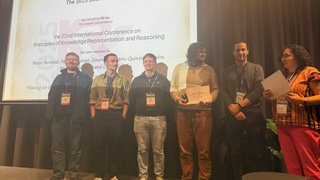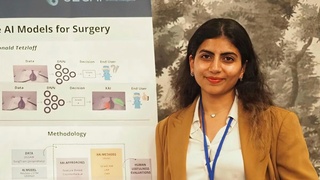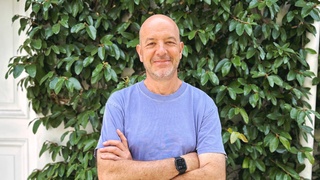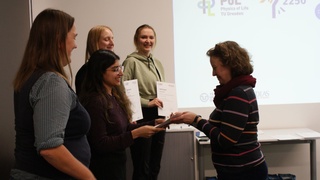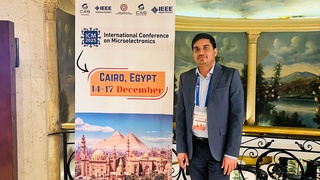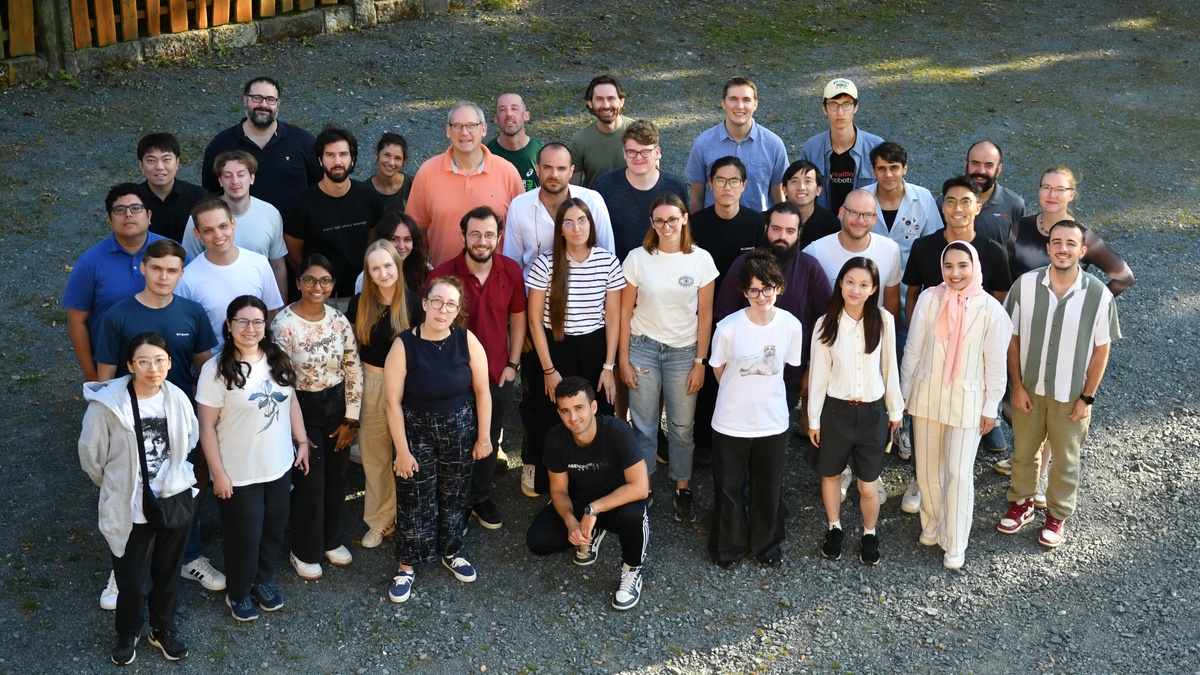
October 6, 2025
From Haptics to Robotics: Touch Sensing and Processing Summer School Unites Research Community
This August, the Touch Sensing and Processing Summer School took place for the second time. Around 40 scientists from 16 countries gathered near Dresden to exchange ideas about their research in the field of tactile sensing and processing in robotics. The five-day event offered promising young scientists the opportunity to connect with leading experts in this field. Tactile sensors are considered a key technology for the next breakthrough in robotic manipulation.
In relation to its importance, research in the field of tactile sensor and processing technology is still relatively moderate in scale, as the pure processing of image data provides insufficient information about the properties of objects that robotic systems are supposed to manipulate. Material properties such as surface structure, weight, and hardness play a central role when robotic systems are to be used flexibly in a variety of different applications. Tactile sensors, therefore offer a promising opportunity to achieve the next breakthrough in robotic manipulation. With the Summer School in Touch Sensing and Processing, Fellow Roberto Calandra offers international researchers a platform where they can receive input and exchange ideas about their research interests.
This year's program combined two main areas of research: research in haptics and materials science inspired by the human sense of touch, and research into robot-based applications. The summer school was opened by Roland Bennewitz (INM–Leibniz Institute for New Materials), who, in his lecture on the tactile perception of materials from a psychophysical perspective, bridged the gap between physical properties and the subjective experience of the sense of touch.
Gregory Reardon (Northwestern University), Stephen Redmond (associate professor at University College Dublin), and Shan Luo (associate professor at King’s College London) showed in their talk how principles and mechanisms of human perception can inspire the development of new touch sensors. They demonstrated how these approaches for localizing and classifying sensations can be applied in various sensor technologies.
On the side of robotic applications, Katherine J. Kuchenbecker (Director of the Haptic Intelligence Department at the Max Planck Institute for Intelligent Systems) and Nima Fazeli (assistant professor at University of Michigan) spoke about multimodal touch sensing and control, emphasizing the central role of haptic feedback in robotic applications. Fazeli also highlighted the importance of interdisciplinary networking: “There are very key distinctions between what the incentives and interests of the teams or groups are. But there's a lot of shared technology that each group can benefit from. And without these summer school opportunities, it'll be very difficult to achieve that understanding.”
 ©
©
TSPSS 2025 hike in the Saxon Switzerland
In addition to a poster session where participants presented their research, the Summer School also offered numerous opportunities for informal encounters. This gave them the chance to get to know each other better on a hike in Saxon Switzerland to the Bastei and to engage in personal conversations about their research. “For me, the best scientific part was hearing the other lecturers, the other presenters, and actually having time to think about what they were saying, ask questions, chat with them over meals, and having space for new ideas,” emphasizes Katherine Kuchenbecker.
